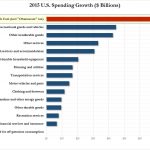Some people claim that humans—called breatharians—can live on air alone. Others claim we can have economic growth without increasing our resource use, so-called decoupling. Neither claim withstands scrutiny though here I am only going to deal with the second one.
Hidden beneath the claim of decoupling is the assertion that human well-being and economic growth are synonymous. But, human well-being is far from a one-dimensional economic variable linked unalterably to more income and consumption. So, saying that economic growth must at some point come to an end to maintain the habitability of the planet is not the same as saying that human well-being must also stop improving.
On the contrary, a stable society in harmony with the workings of the natural world in a way that maintains the habitability of the biosphere for humans would seem to be an essential characteristic of a society which offers a high degree of well-being to humans. Destroying that habitability through endless economic growth then is contrary to human well-being in the long run.
All of this should seem obvious. But so often the advocates of growth or “sustainable” growth tell us that ending growth would destroy the chance for countless people to attain well-being in our modern industrial world. While that has some truth within the narrow context that measures well-being as a function of economic output, it misses the point above. An uninhabitable world is really, really bad for human well-being.
The answer these advocates say is economic growth decoupled from increased resource use. But as two recent papers suggest, this is an oxymoron.
As “Is Decoupling GDP Growth from Environmental Impact Possible?” explains, while society has been getting gradually more efficient at producing goods and services, we are not anywhere near economic growth without increased resource use. The apparent decoupling in Germany and some other countries is probably due to the following factors:

















Leave A Comment